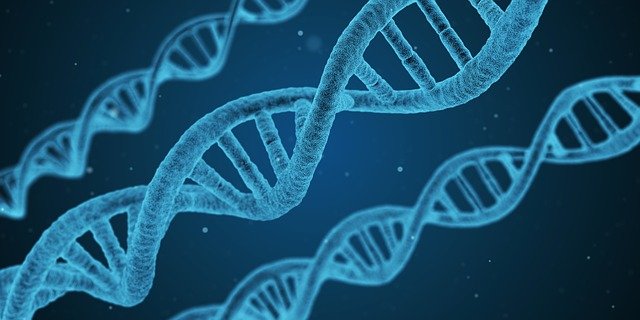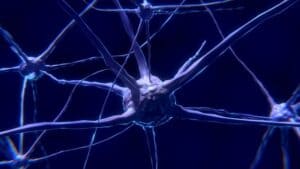
Did Life Begin in a Shallow Pond?
A recent CNN article promotes the idea that life on earth began through chemical reactions in a shallow body of water. Unfortunately for them, the shallow pond idea doesn’t hold water!

NASA and other scientists are hoping and working to find signs of extraterrestrial life on some distant planet or asteroid. NASA’s working definition in their search for life on other planets is, “A self-sustaining chemical system capable of Darwinian evolution.”1
Darwinian evolution – the hypothesis which unfortunately is the accepted scientific standard in media, academics, government, and even some churches! – assumes life on earth began in a very basic form and “evolved” to be increasingly complex through beneficial mutations of DNA (the encoded instructions for building life). In other words, one-celled organisms “evolved” into human beings over billions of years. In fact, Darwinian evolution is based on this assumption and should be dismissed as fantasy if 1) there is no direct evidence to support it or 2) there is evidence contradicting it.
Charles Darwin died in 1882. During his lifetime, the most sophisticated microscopes relied on light and could not observe the complexity of cellular structure. Darwin’s hypothesis was postulated in a time when scientists thought cells were bags of cytoplasmic goo. They looked very simple! It wasn’t until the 1930’s that electron microscopes began to identify the structures within cells and began to reveal the intricate complexity and inner workings of cells, including the basics of replication and protein synthesis. Due to scientific advances since Darwin’s death, there is mounting evidence that there is no such thing as a basic or “simple” life form.
Consider bacteria, which are alive by scientific consensus and consist entirely of just one cell. We would classify bacteria as “simple” life forms. E. coli bacteria are a well-known and well-studied example. E. coli have 4,000 – 5,000 genes (a gene is the section of DNA that provides instructions on how to make a protein), compared to humans, which have around 20,000 genes. However, scientists today would say bacteria are anything but simple.
Bacteria can store memories of their environments and pass those memories along to their descendants. The lead author of a 2023 study noted, “Bacteria don’t have brains, but they can gather information from their environment, and if they have encountered that environment frequently, they can store that information and quickly access it later for their benefit.”2
Bacteria can see. According to the author of a 2016 study, “bacteria can see their world in basically the same way that we do,” using their single-cell body to focus light like a camera lens. 3
Bacteria can also hear, communicate with other bacteria, and work together as large coordinated groups to carry out tasks that a single bacterium could not perform alone. 4
So what is the simplest form of life? A research team developed it by stripping down a bacterium to only the basic genes necessary for it to live. 473 genes were required, and of those 473, the scientists were unable to figure out what one third of those genes do.5 Though simple in terms of the number of cells it possesses, a bacterium must do everything required for life – sense and respond to its environment; obtain, store, and use energy; reproduce; etc. – using only its single-cell body.
Dr. Michael Behe presents a biochemical challenge to evolution in his book Darwin’s Black Box. In it, he describes the irreducible complexity of multiple mechanisms that are occurring uncounted billions of times a day on an atomic level in the cells in our bodies. ‘Irreducible complexity’ is his term relating the concept that if you remove one component of a system, the system cannot function at all. A rat trap with a missing spring will not catch a rat because that system is irreducibly complex and cannot operate if even one piece of the system is missing.
In other words, cellular systems such as energy production and protein synthesis could not have evolved from simpler systems. It isn’t possible because one missing component would shut down the whole system. Proteins are even required to make new proteins! His book is a great read if you want to see how Dr. Behe unpacks his argument – in profound detail – against evolution and reveals evidence which supports intelligent design.
Science will continue to confirm that life did not evolve. Rather, life was designed, and the Bible explains that life was created in distinct “kinds” – a family grouping term – on Days 5 and 6 of creation week, as told in Genesis 1.
Science is revealing how infinitely intelligent our Creator is. And the Bible goes on to explain the purpose of creation: God the Father wanted a Bride for His Son (John 3:29; Ephesians 5:25-32; Revelation 21:9; 22:17), and a family He could be glorified in (2 Thessalonians 1:10, 12; 1 Peter 4:11, 14). Motivated by love in all that He creates and all the work He does, He sent His Son, who willing agreed to become a man and die for us so that our sins won’t separate us from Him eternally. We are not the result of random chance mutations, with a meaningless existence. We are the heart-desire of an all-knowing, all-powerful God. Let us not entertain the fairy tales of evolution any longer in light of the evidence but embrace the glorious truth. Jesus said, “I am the way, the truth, and the life” (John 14:16).

A recent CNN article promotes the idea that life on earth began through chemical reactions in a shallow body of water. Unfortunately for them, the shallow pond idea doesn’t hold water!

Our creative team is always seeking new ways to reach the world with CMOTO’s message that real science confirms the Bible… every time! And we’re excited to announce that our new Creation Matters podcast is now live!

“Exciting things are in store for Creation Ministries of the Ozarks this spring! First, we have more details on our Examine the Evidence Conference for pastors and ministry leaders.“
“As we gear up for our regular season, we will also be opening enrollment for the spring Internship Program and the Volunteer Training Program.“

“As science unveils new discoveries every day, we see the unending beauty of the solar expanse and the unnerving complexity of our own genes. Research on the brain, in particular, has exploded over the last few decades…”
